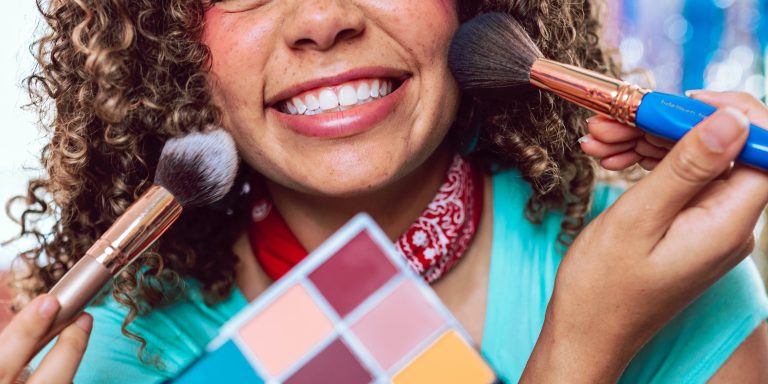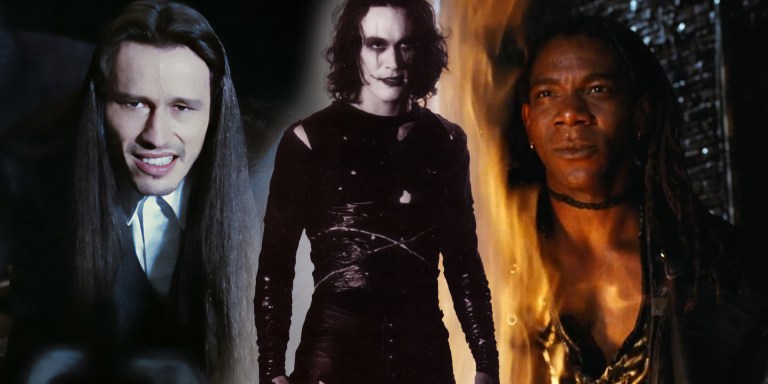
My attempt to convey the knowledge I’ve gained in the past 30 years, has proven to be more challenging than initially anticipated. It wasn’t simply a matter of listing a series of learning, but prioritising and selecting the most critical ones, that have left a long-lasting imprint on me and have shaped my persona in the way people and I recognise it today.
Earlier this year, I visited the biggest mosaic museum in the world called the Zeugma museum in Gaziantep, Turkey. I remember that day, when I lurched amid the ancient ruins gloriously erected, I almost felt like travelling back in time. Every mosaic told a story; every coloured stone represented a chapter, which when assembled, recreated a whole era.
As I was approaching 30, a cascade of questions and answers was triggered in my head. What have I learned in the past 30 years? Have I learned anything at all? I reflected, dug up buried memories, relived vivid souvenirs, in an attempt to recreate the mosaic of my own life.
1. Everything is transient.
Like most people, I grew up believing in eternity. Eternal life, eternal love, and eternal happiness are some of the “eternals” I aspired to reach. Whether instigated by religion or fear, eternity is a myth, a phantom we secretly nurture in the shadows of our thoughts, hoping it’ll become real one day. This is what my recurring losses made me realise. All my life events were like waves upon which I surfed, for just a little while. They all hit my inner shores one day, and disappeared in the sands of my memories. Some things stayed, yes, but they were never the same again. Everything is transitory. Don’t you think?
2. “The grass isn’t greener on the other side.”
We spend a great deal of our time wishing to have what we don’t have. If we have a garden, we’d wish for a forest, and we have a forest, we’d wish for a jungle, and if we have a jungle, well, we’d wish for a garden. We think that other people’s lives are better. We think their moon is always full and their stars are always brighter. I myself, was not immune to such a demeanour. But oh how mistaken we are! Don’t we know that we all have a burden to carry, that we all are soldiers of life fighting a battle no one knows of? I learned to spend time watering my inner garden and sowing my own seeds. After all, our plants are all susceptible to droughts and worms, no matter in which land they grow. Grass is grass.
3. The ego is a weapon of mass destruction.
I grew up in a culture that constantly tries to prove itself. Trapped in a struggle between conservatism and liberalism, we perpetually attempt to find an identity that defines us, and reclaim the lost pieces of ourselves scattered between the East and the West. This might be more pronounced in my culture than in others, but I dare say it’s not uncommon to anyone. Don’t we all try to prove ourselves in many ways? Don’t we all want to prove we exist? This is called ego. A dominating power that reflects our desire to impose, conquer, overtake, and win. I myself, fell prey to my ego many times. Pride, arrogance, and pretension are all symptoms of a magnified “I” and major hurdles to achieving one’s full potential. Our ego destroys us, destroys others, and blinds us. I learned to be more humble, more loving, to compromise, and to forgive. In short, I learned to see more with my heart for “it is only with the heart that one can see rightly; what is essential is invisible to the eye.”
4. Kindness is a weapon of mass construction.
Can we all recall a time when we’ve been mistreated? It happens nearly anywhere: at work, at home, on the streets, and in our social circles. Doesn’t it? Mistreatment is a form of violence that fuels the demons of revenge lying dormant beneath our ego. Our reactions often bring up similar levels of anger, abuse, and harshness. I’ve done that a few times, until I finally learned to do the opposite more often. Being kind among the wolves is neither cowardice nor weakness, as our ego falsely indicates. Kindness is a weapon of mass construction, the ultimate expression of maturity and wisdom. It rebuilds the dismantled pieces of love, restores one’s dignity, and soothes even the most painful emotional wounds. Coming to think about it, kindness has always been rewarding to me and has always done me justice. So no matter how strong the urge to hurt or destroy the other might be, I learned to let kindness prevail, because it’s only then that I am a winner.
5. Finding a lifetime partner is not a pre-requisite for happiness.
We live in a world where finding our significant other is perceived as a necessity, an ultimate goal in itself. Most of us recognize the eternal symphony and its traditional movements sung all around us: “finding the (right) one”, “getting married”, and “having children”. While to some this is a secret recipe for happiness, to me it’s called noise, an irritating resonance in the background. I learned how to ignore it. In fact, I realised that I met many ones, and I believe they were all right. Just because they didn’t stay, doesn’t mean they were wrong. Over time, I learned to compose my own sonata and created different movements. I called them “self-sufficiency”, “autonomy”, “freedom”, and “independence”. I am all these four. I am grounded. I am proud.
6. Happiness hides in small things.
When I was younger, I created an image of myself at the age of 30 which is today a black and white picture resting in the album of my memory. I kept it there purposefully to remind me of how far I was from reality. All the expectations and hopes I had for what a happy life looks like were merely an illusion. In that photo, I was posing with a husband and three children, all of whom I haven’t met yet. My life today is all but traditional. It doesn’t meet our society’s minimum standards of a happy life. But oh how rich I am! How free and lucky I am to experience adventures out of the ordinary and moments of infinite joy! I found happiness in small things: in the corners of coffee shops, in one line of a book, in greeting a homeless, in exchanging a smile with a stranger, in wandering in a very old castle. We don’t need to follow the norms. We don’t need be conventional. Look around! Happiness hides in small things.
7. “Everything is poisonous, nothing is poisonous, it is all a matter of dose.”
This learning goes back to my chemistry class in school. I didn’t know back then that it’s a philosophy I should apply in all aspects of my life. It is called moderation, an essential ingredient for my equilibrium. Moderation in love, in fun, in ambitions, brings inner peace even to the most turbulent souls. It has kept me solidly grounded and stable. I notice that the majority of people struggle to maintain a balance and are more inclined towards extreme opposing poles. They either have an overdose of everything or choose never to taste anything. This is perhaps why my pace can hardly be synchronised with the majority. My irritation doesn’t come from what they say or do, but how often they say what they say or do what they do. Too much love can suffocate, while too little love can lead to starvation. I learned to love just enough, have fun just enough, cry just enough, and be… just enough.
8. Patience is a virtue.
I am an impatient person. I live more in the future than the present. My imagination is always racing with time. I paint pictures of the flowers that’ll grow next spring. I find waiting to be very hard. I never got used to its bitterness. I think waiting is possibly the heaviest burden borne by the spirit. Yet, waiting is inevitable. Looking back at my life, I realise that all the good things that happened to me saw the light after long periods of waiting. It is true these periods were intercepted with bouts of impatience, but they were developed, shaped, and polished by patience. The questions that once tormented me about love, friendship, careers, self-worth and others, all found their answers in my patience. It might be true after all that “good things come to those who wait”.
9. Good quality relationships matter.
This might be a bit scientific but studies have shown that good quality relationships are associated with better health outcomes, and this is not just physical health. Loneliness for instance increases the risk of depression and is associated with a lower life expectancy. The findings of the Harvard Study of Adult Development recently presented on TEDx confirmed an ancient wisdom we all know. The study watched the lives of people for over 75 years and concluded that “good relationships keep us happier and healthier”. I learned to nurture the relationships I have, to protect and safeguard them. I still despise the abundance of people in my life. I don’t have neither time, nor energy, nor the appetite to collect friends and acquaintances. I am just happy and grateful with the few ones I have.
10. “We accept the love we think we deserve.”
Or so I’ve heard for years and years without knowing what this means exactly. I’ve accepted mistreatments many times. I wept as a result of it many times. Yet I’ve made the same choices time and again. Why do we re-engage, over and over again, in experiences that once made us suffer? Today the answer comes as clearly as ever: because we don’t think we deserve better. Over time, I learned to appreciate myself, value myself, respect myself, love myself, and it’s only then, only when I saw how worthy I am, that my choices became rightful, healthier, nurturing, and enriching. I do deserve a good life. So do you. I do deserve to be loved. So do you. I do deserve to be treated well. So do you. Today, I will never accept anything less. And so you will.






